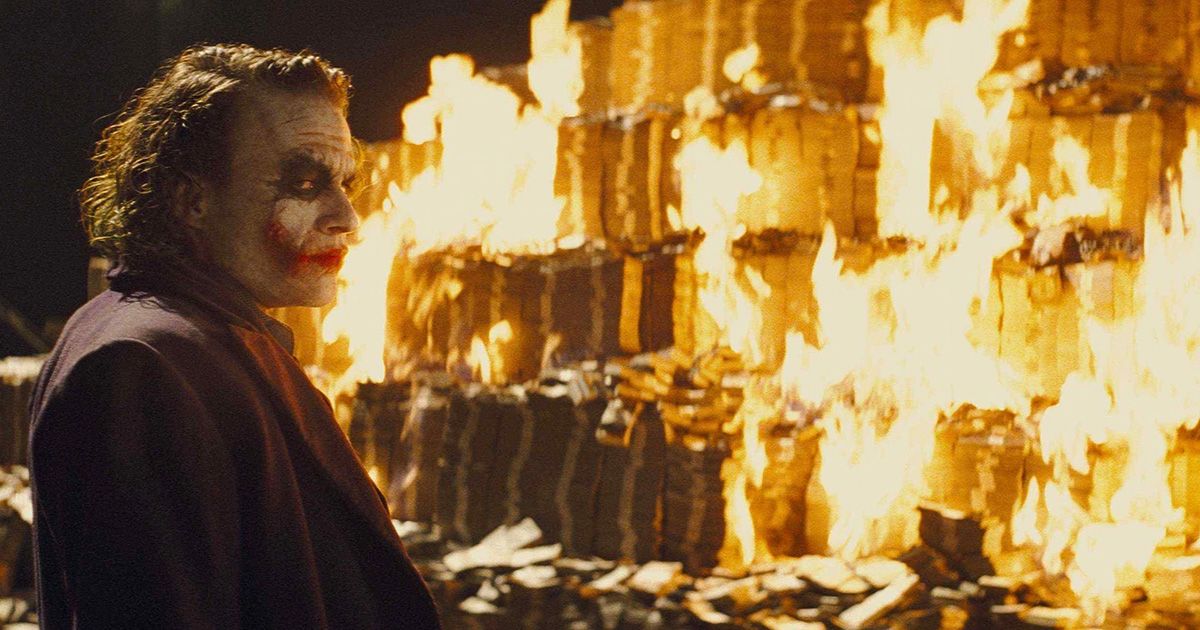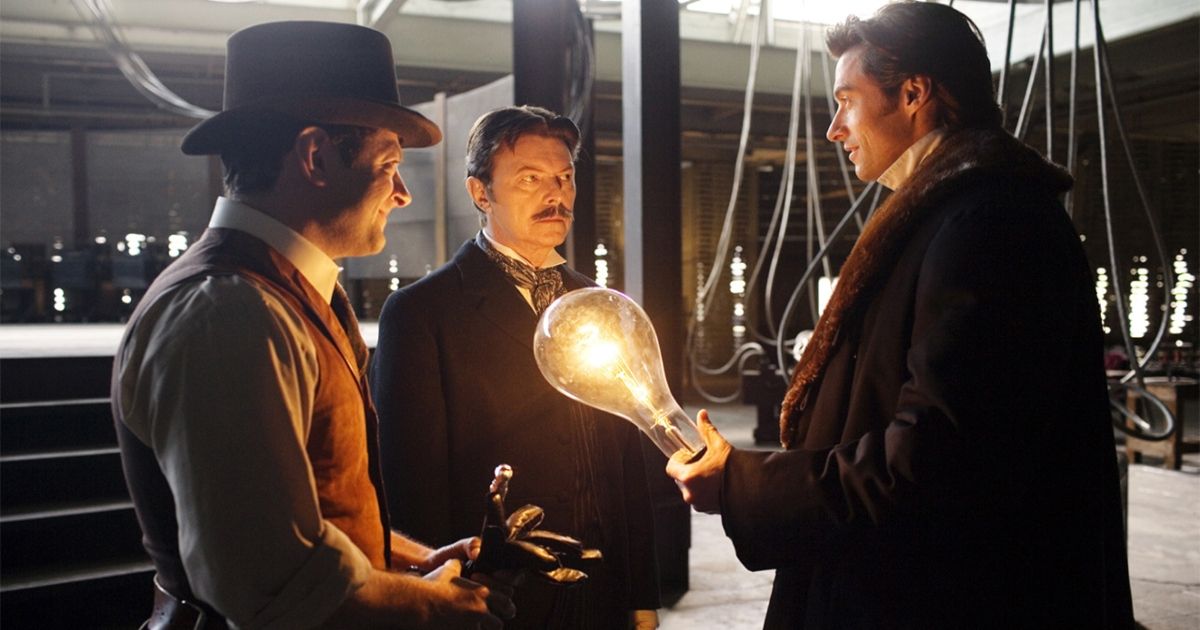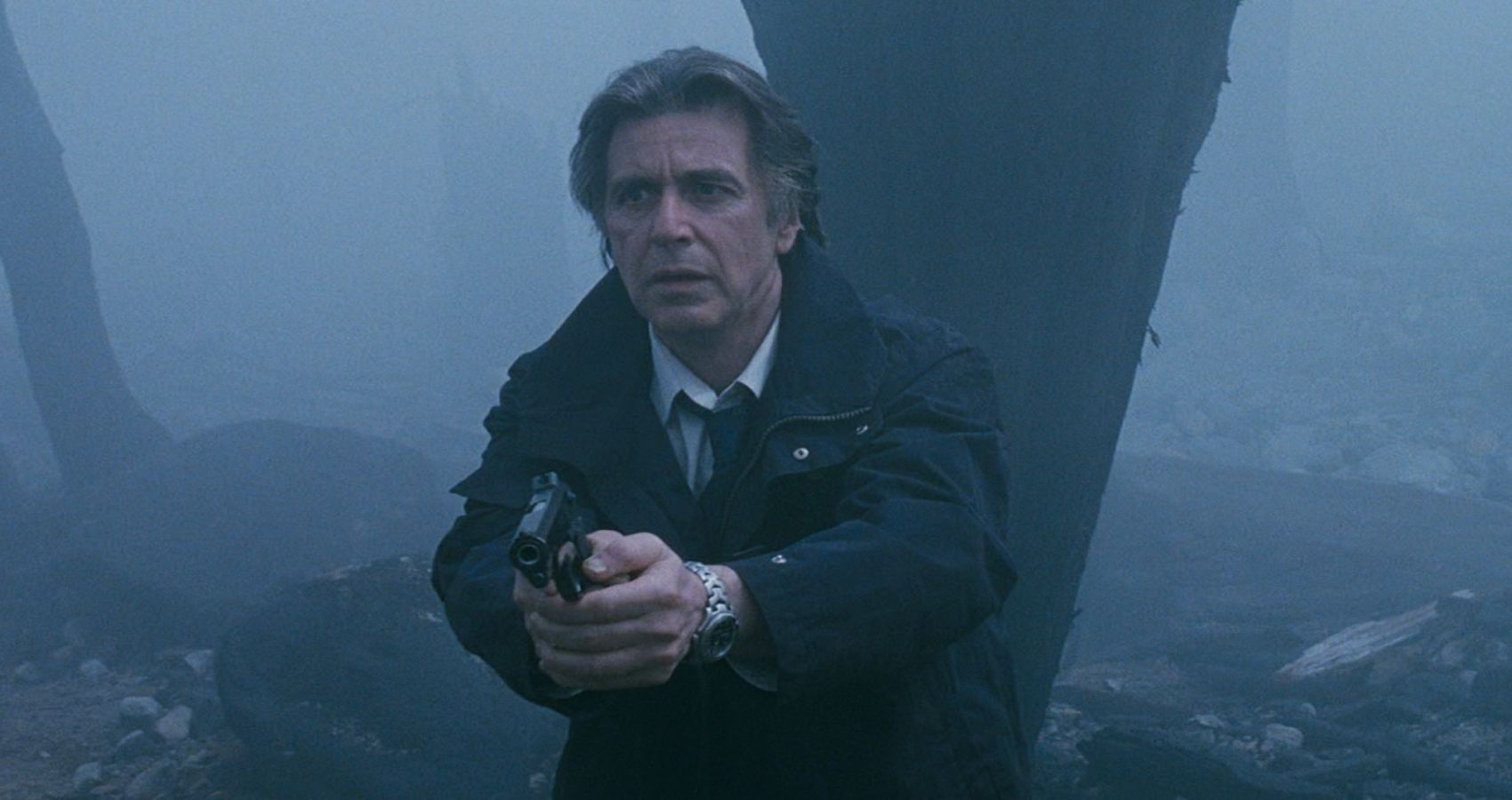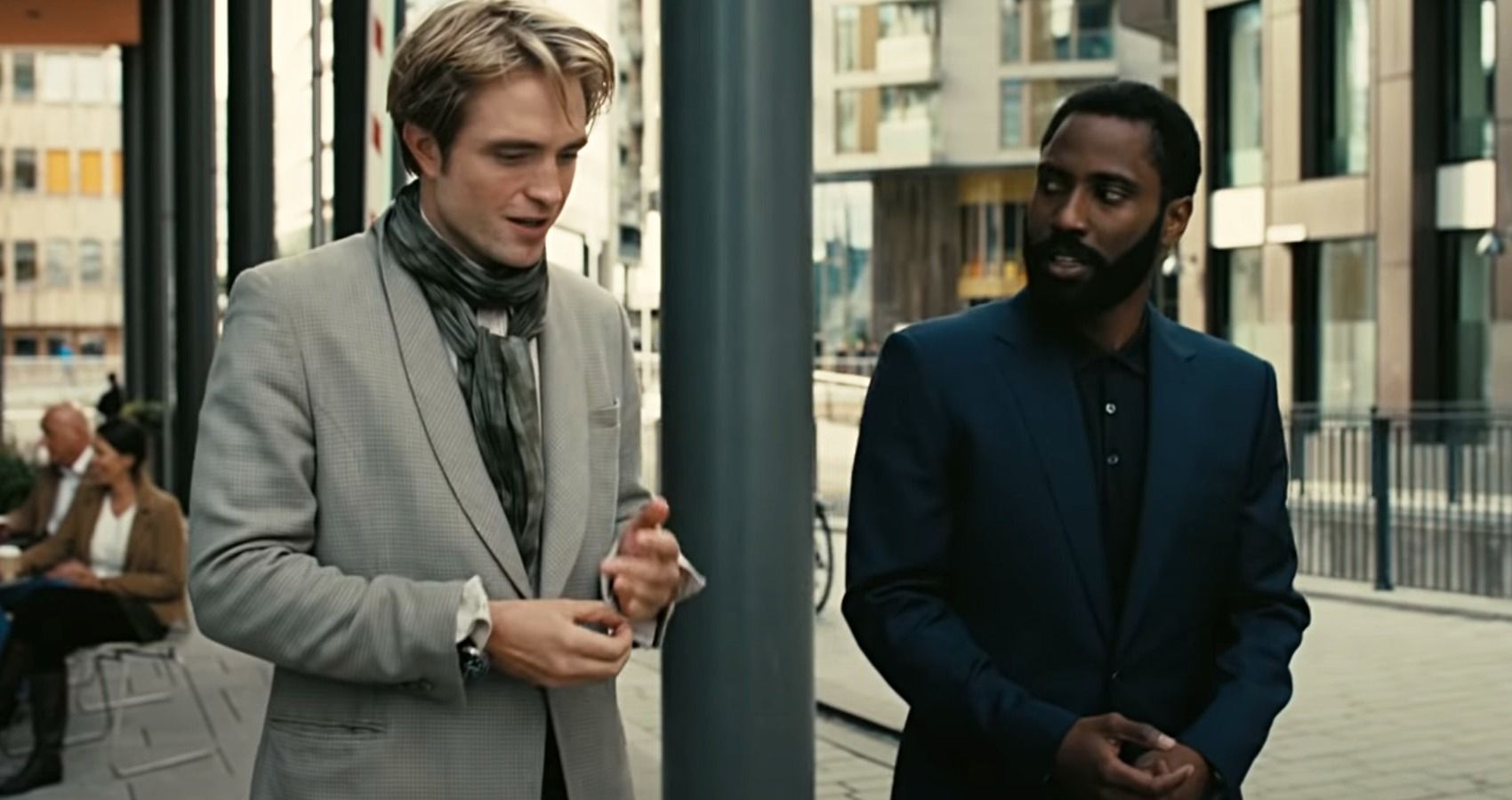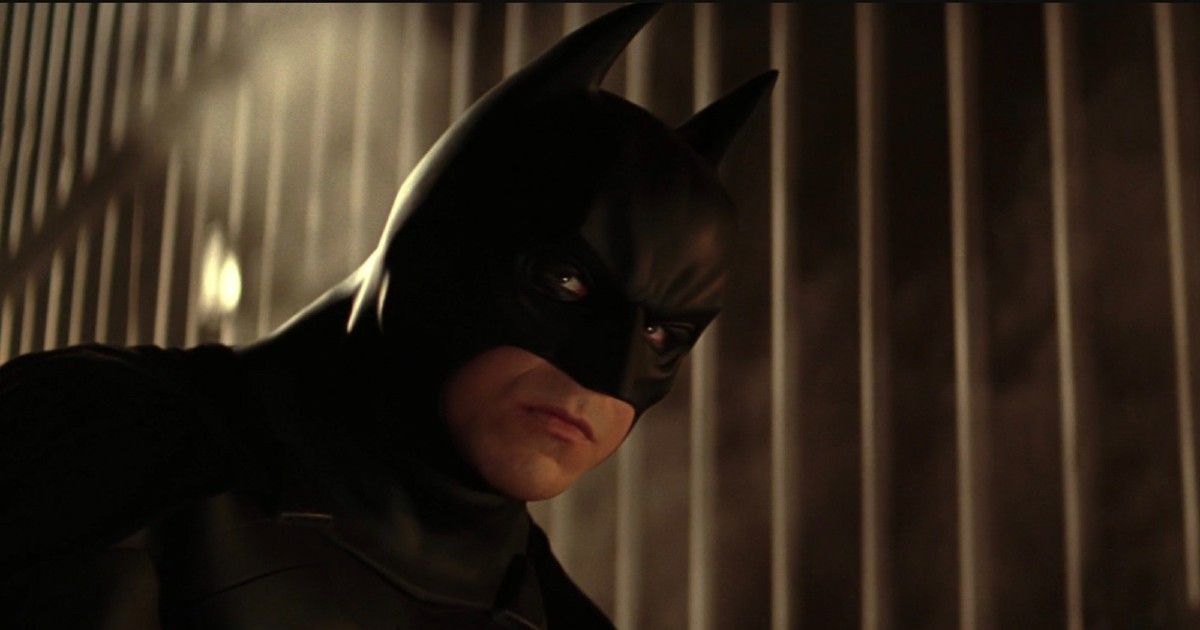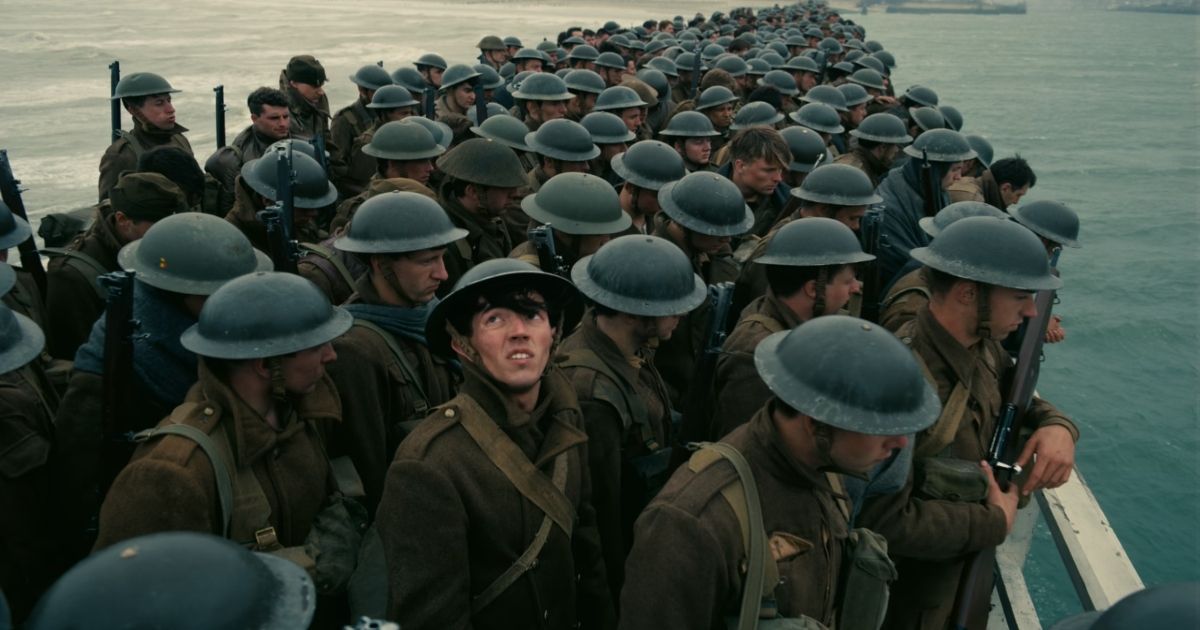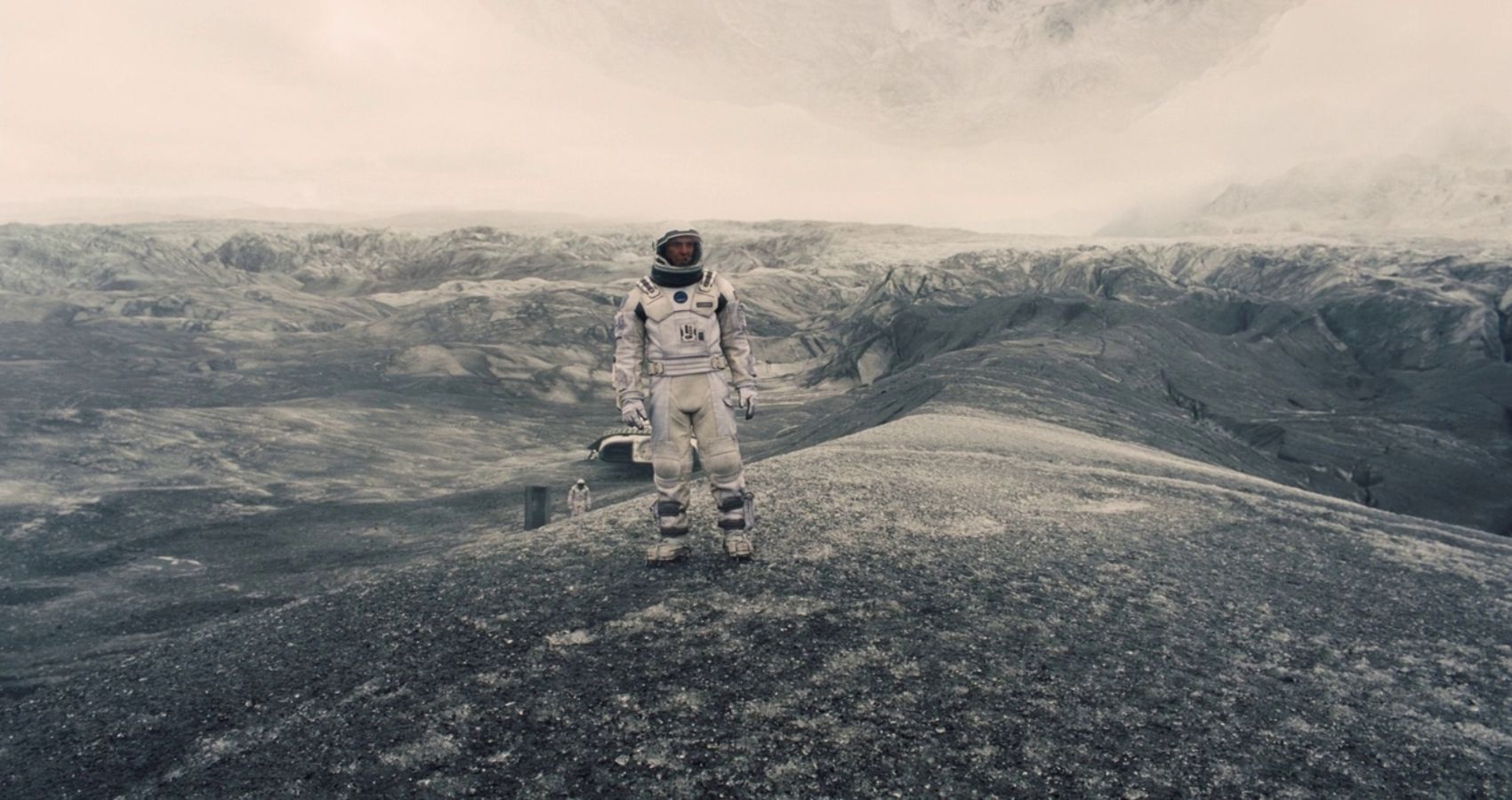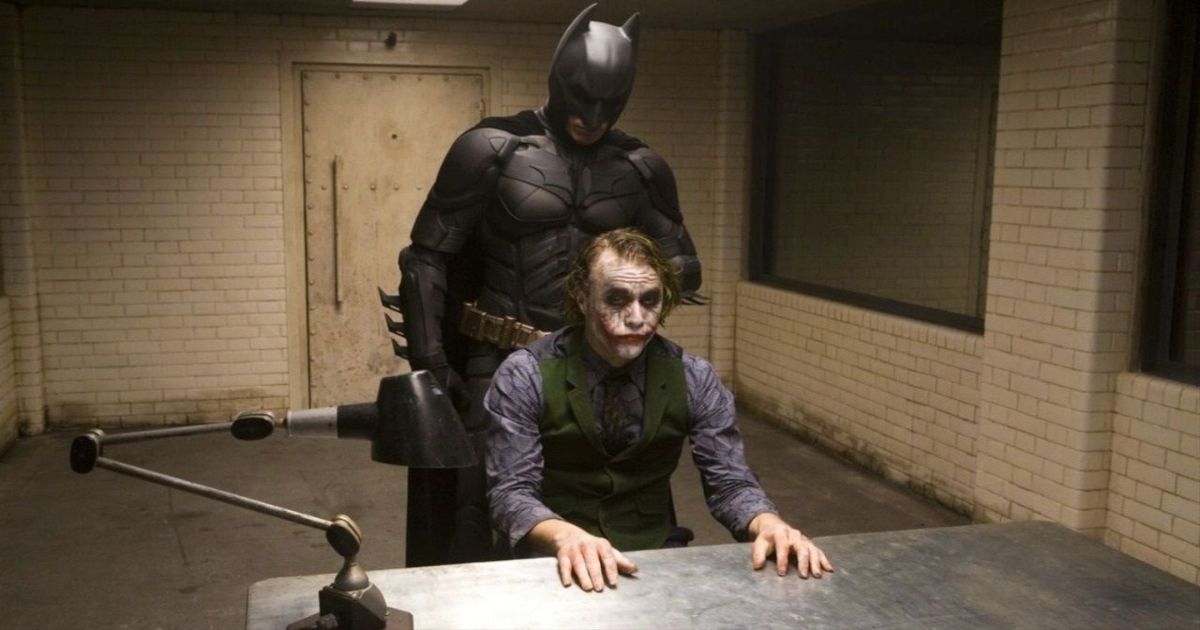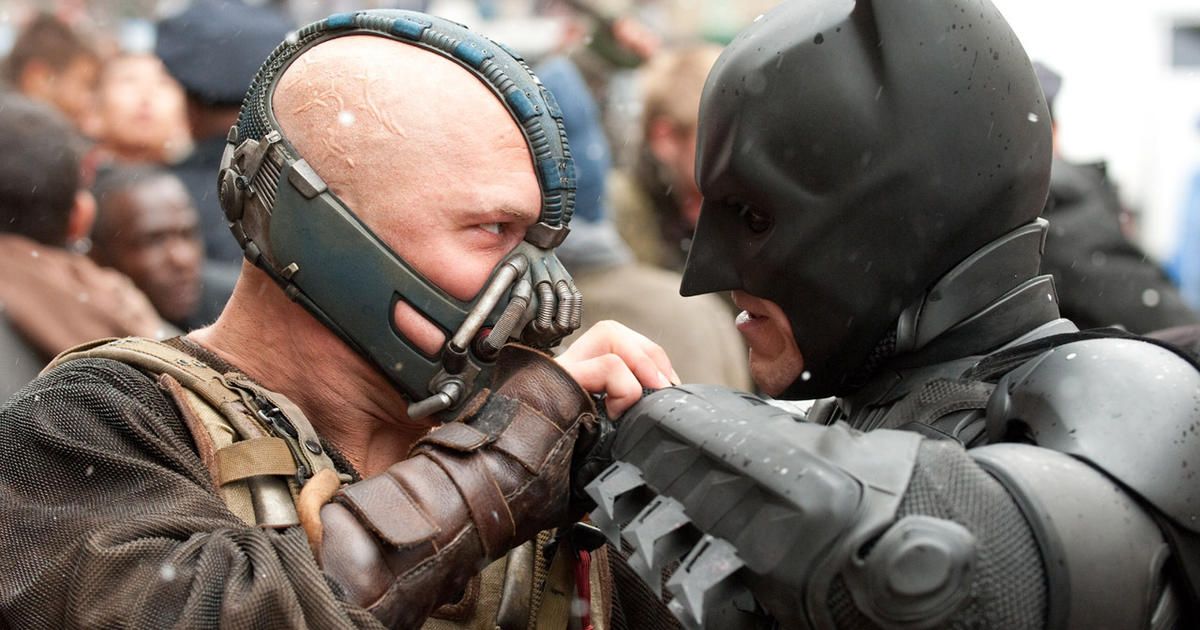Christopher Nolan is one of a small number of movie star directors of the 21st Century. His reputation for incredible filmmaking has made him a recognizable and bankable household name. His name alone will gain the interest of general audiences, and no matter the content of the movie, crowds will typically come out in droves to see whatever the latest Christopher Nolan concoction will be. This is a rare position for a director to find themselves in these days, as even on-screen movie stars are becoming less and less common. Over the last decade or two, only a few other directors, such as Quentin Tarantino and Jordan Peele, have been able to attract this kind of interest from audiences.
There is always endless debate over which of Nolan’s films is his best. Some insist The Dark Knight is his finest work, while others believe his original works such as Memento or Interstellar are the crown jewels of his filmography. Of the 11 feature films he has directed so far, there’s an argument to be made that Nolan has yet to make a bad one. The only entry on that list for which people actively debate its quality is the final film in his Dark Knight Trilogy, 2012’s The Dark Knight Rises. Regardless of where you fall on The Dark Knight Rises or any of Nolan’s other works, there’s no debating that the director has grown into a franchise of sorts in and of himself.
Looking back on Nolan’s career, the point at which general audiences began becoming aware of the director is clearly written on the box office receipts. Earlier in his career, Nolan was definitely making a name for himself among the more hardcore and niche film-going audiences, but it was after the immense success of The Dark Knight that he achieved his legendary status among general audiences. However, that does not mean he failed to have success at the box office prior to 2008. Nolan has had a lengthy career, and with his 12th film Oppenheimer hitting theaters next summer, it seems a good time to revisit his long list of works and how they were received by audiences. Here’s how each of his films ranks in terms of their box office performance.
11/11 Following (1998) – $240,495
It’s no surprise that Following is the lowest-grossing film of Nolan’s career, as it is also the director’s very first feature film. It’s a movie that is often either forgotten about or just never even recognized by general audiences. The film was released in 1998, and it only ever played in two theaters at a time here in the United States. With a budget of only $6,000, Following was a film that Nolan chiefly made out of a passion for the craft and cooperation with his friends who were also interested in filmmaking.
Considering its small theatrical release and even smaller budget, a box office gross of almost a quarter of a million dollars is actually pretty impressive for Following. A majority of that money came from the international box office, where it made just over $192,000 as compared to the $48,000 it made in the U.S. Much of this likely came from the U.K., considering Nolan hails from London, where he attended university and also filmed Following. Nolan’s debut film is the definition of an independent film, and it’s certainly worth viewing if you’re a fan of his work.
10/11 Memento (2000) – $40,047,078
Memento was Nolan’s real breakthrough into the film industry at large. It debuted at the Venice International Film Festival in 2000, before it eventually was given a wider release by the American film distributor Newmarket. In the United States, Memento grossed just over $25 million, and overseas it brought in an additional $14 million. With a budget of $9 million and a total box office haul of just under $40 million, Memento was certainly a step up from Following. The film eventually passed the $40 million mark in 2020 with a limited release in South Korea.
Nolan was still establishing his name in the film industry, though, and Memento didn’t reach a mass audience right away. Even though it caught the attention of film enthusiasts and those in the industry who were starting to notice Nolan, Memento was far from the heights of where his career would go. It was given a 500-theater release in the US in 2001 (for comparison, most wide releases these days are over 3,000 theaters). The biggest feather in Memento’s cap was its award recognition. The film was nominated for two Academy Awards. Dody Dorn was nominated for the film’s editing, while Christopher and his brother Jonathan Nolan were nominated for Memento’s screenplay. Nolan was establishing his name, but it would still be a little while before he really began to catch widespread attention.
9/11 The Prestige (2006) – $109,676,311
Here’s the point in this box office ranking in which the order first deviates from the chronology of Nolan’s filmography. Although his follow-up to Memento was 2002’s Insomnia, it’s his fifth film, 2006’s The Prestige, that takes the next spot on the list. For die-hard Nolan fans, The Prestige is a favorite, with some people believing it is Nolan’s best film. The film was his first after the launch of his Dark Knight trilogy with Batman Begins in 2005. With an all-star cast that includes Hugh Jackman, Christian Bale, Scarlett Johansson, Michael Caine, Rebecca Hall, Andy Serkis and David Bowie, The Prestige was certainly a success. It also had the added win of outperforming The Illusionist, a similar film starring Edward Norton that was released the same year, at the box office.
The film was distributed by Buena Vista Pictures, a subset of Disney, domestically, where it brought in just over $53 million. Internationally, the distribution was handled by the formerly-frequent Nolan collaborator Warner Bros. The Prestige grossed $56 million overseas, which brought its overall box office total to $109 million. Off a $40 million budget, that’s not too bad. The film was certainly a critical success, and it still holds a quite dedicated cult following. The Prestige also received two Oscar nominations: one for Wally Pfister’s cinematography and the other for the art and set direction from Nathan Crowley and Julie Ochipinti.
8/11 Insomnia (2002) – $113,758,770
Back to Nolan’s third film in his career, sequentially, there was a lot of interest in Insomnia as it was the director’s first follow-up to his breakout film Memento. Since his last film had more firmly established him in the industry, Nolan was able to bring some big names into the cast for Insomnia. Specifically, the film was anchored by Al Pacino, Robin Williams, and Hilary Swank. The film is a heavy crime thriller, and tonally it is the least Nolan-like film of the legendary filmmaker’s career. This is likely because it is the only film that he has directed in which he didn’t also have a screenwriting credit. Insomnia was written by Hillary Seitz, and it was adapted from a 1997 Norwegian film of the same name, which was scripted by Erik Skjoldbjærg and Nikolaj Frobenius.
Insomnia was released in 2002 and was generally considered to be a solid follow-up to Memento. Though it didn’t receive any recognition from the Oscars that year, Insomnia was still praised for Nolan’s direction and the outstanding performances from its central cast. As for the box office, Insomnia saw some solid growth from Memento’s $40 million. It grossed $67 million in the US and $46 million internationally, bringing its overall box office total to just over $113 million. It didn’t release in Bulgaria until 2004, but little changed in its box office story with that rollout, as it only added another $43 thousand.
7/11 Tenet (2020) – $365,294,355
Tenet is at an interesting spot in this box office ranking, and that’s largely because of the nature of the world during its release. It is the most recently released film in Nolan’s career at this point, and although the filmmaker is still one of the most widely known and praised directors in the world, even he can’t overcome the effects of a global pandemic. It was the first major film to return to theaters after the onset of Covid-19, about six months prior. Theaters were just starting to open up again, and Nolan was committed to saving the theatrical experience. Warner Bros. needed some convincing to release the film that early on into the pandemic, but Nolan eventually persuaded them. Tenet was originally set to release at the beginning of July 2020, but after several pandemic-related delays, it ultimately hit theaters at the close of the summer, meaning the end of August internationally and the beginning of September (Labor Day weekend) domestically.
Although some theaters were still closed, the film still played in over 2,900 theaters. It opened to a mere $20 million over the long holiday weekend in the US, as compared to the around $50 million that Nolan’s previous two films had. However, with little else being released to compete with the film, Tenet had several months to rule the box office. Ultimately, it grossed just over $58 million domestically. Considering the circumstances, Tenet actually performed fairly well internationally. It ended up bringing in just over $300 million at the overseas box office, bringing its global total to $365 million. This international success was largely driven by China and Europe. In a rare (but gradually increasing) occurrence, Tenet actually performed better in China than it did in the US. In China, Tenet opened to almost $30 million and grossed a total of $66 million. Elsewhere, it pulled in $25 million in Japan, and then $20 million (give or take) in the United Kingdom, Germany, and France, respectively.
6/11 Batman Begins (2005) – $373,672,993
The success of Batman Begins at the box office is an interesting story. Although the movie is thoroughly a Christopher Nolan film, and looking back in retrospect it seemingly does compare well with the rest of the filmmaker’s canon, there’s also the added complication of it being a Batman movie. When Batman Begins was released, Christopher Nolan wasn’t yet the bankable name he is today. His most recent film was his third feature, 2002’s Insomnia. As such, the film’s box office performance was much more driven by the fact that it was a Batman movie, rather than a new Nolan film. It was a complete reboot of the iconic caped crusader after the last Batman series had declined into pure camp over the course of the 1990s before it died with the release of Batman & Robin in 1997. By the time 2005 came around, there was a lot of curiosity regarding this new Batman story, especially considering Nolan took it in a more serious and dark direction.
As far as Batman movies go, Begins performed pretty well. While it didn’t meet the box office heights of Tim Burton’s Batman in 1989, it did surpass all three of the ‘90s sequels (Batman Returns, Batman Forever and Batman & Robin). Nolan’s first blockbuster outing was his most successful film yet, and it successfully revived the dormant Batman franchise with a fresh and new creative vigor. The film pulled in over $370 million worldwide, with $205 million coming from US and Canadian markets and $165 million from overseas. Batman Begins was a real turning point in Nolan’s career. It was after the success of his first Batman crusade that he went on to make The Prestige, before then following that up with a run of films that would solidify his place in Hollywood’s history books.
5/11 Dunkirk (2017) – $527,016,307
Although Nolan largely moved into the world of epic blockbuster filmmaking after Batman Begins, he eventually returned to the world of reality-based dramatic storytelling with Dunkirk. Upon its release, many people saw Dunkirk as Nolan’s first direct bid for awards recognition. Despite his growing prestige reputation and the fact that he was nominated for Memento and Inception previously, Nolan had yet to actually win an Academy Award. Ultimately, he would still be left wanting after Dunkirk. The film was nominated for two Oscars, Best Picture and Best Director, but Nolan still walked away empty-handed.
The film tells the real story of the Dunkirk Evacuation during the Second World War. Released in July 2017, Dunkirk did pretty solid business, which was largely fueled by Nolan’s name. At that point, he was already thoroughly established as a must-see director with a reputation for crafting compelling stories and visually-striking films. Dunkirk opened with just over $50 million in the US, after which it would eventually grow to $188 million. With an international haul of $337 million, Dunkirk made a total of $525 million worldwide. Nolan’s next film, Oppenheimer, is another dramatic piece set in the same era, so it will be interesting to see how that film’s box office receipts compare to Dunkirk’s when it releases next summer. That, and if it can succeed where Dunkirk failed during awards season.
4/11 Interstellar (2014) – $716,218,351
The final four films on this box office ranking are, unsurprisingly, Nolan’s most well-known cinematic pieces. 2014’s Interstellar is probably the biggest example of Christopher Nolan’s box office draw at work. It is a nearly three-hour-long dramatic space epic with grand themes about love and humanity’s future. That’s not the kind of film that is haphazardly green-lit on a whim by studios these days, and it’s not something that is going to entice mass audiences by default. It was Nolan’s name and reputation that drove Interstellar to the stars. Without Nolan, the film would likely have struggled to find an audience. Look, for example, at 2019’s Ad Astra, which took a similar approach to narrative and scope but only grossed $127 million worldwide. Two other contributing factors to Interstellar‘s success are: it was Christopher Nolan’s first film to follow his massively successful Dark Knight trilogy, and so people were curious to see what else the director could offer; and the second was that it was just a truly outstanding film with great word of mouth.
Domestically, Interstellar performed pretty exactly on par with where Dunkirk would land three years later. It opened to $47 million and eventually grew to about $188 million in the US and Canada. Internationally, however, Interstellar was a much bigger hit than Dunkirk would be. The Matthew McConaughey-led space epic pulled in $489 million overseas, which brought its original theatrical total to $677 million. However, audience love for Interstellar has only continued to grow in the years since. As the result of various re-releases, specifically in China and South Korea in 2020 and in Australia in 2021, the film’s total box office haul has now grown to $716 million.
3/11 Inception (2010) – $836,848,102
Although Nolan was certainly growing into a bigger name director after his immense success with The Dark Knight, it was his 2010 film Inception that really established him in the legendary and historical directorial spot that he still holds. Up until Inception, Nolan had delivered two Batman films that really connected with general audiences as well as other dramatic fairs such as Memento and The Prestige, which garnered him critical acclaim. It was with Inception that he really melded these two worlds of success together. He proved that, while he could certainly make a good Batman movie, he could also make truly spectacular original blockbusters that would get people excited to come to the movies.
Inception was Nolan’s passion project. He had been working on the script for nearly a decade. Although he had previously pitched the film to Warner Bros in the early 2000s, it wasn’t until he had proven himself on the big-budget Batman films that he was given the green light to make his complicated dream-based heist movie. In short, the film was a home run at the box office. It dominated much of the cinematic zeitgeist of 2010, and it was the fourth highest-grossing film of the year. Inception grossed over $292 million domestically and $533 million internationally, which brought its total initial run to $826 million. Just as with Interstellar, various re-releases have added to that total, and it now stands at $836 million.
2/11 The Dark Knight (2008) – $1,006,234,167
It’s no secret that 2008’s The Dark Knight is something special. While Nolan had found success with Batman Begins in 2005, and he had delivered another critical darling with The Prestige in 2006, it was The Dark Knight which elevated the director to an entirely new level. There could be, and surely are, many articles dedicated solely to the success of The Dark Knight. In short, the astounding critical and financial success was due to a mix of truly great storytelling, the good will garnered from Batman Begins, the return of Batman’s most iconic villain, and a truly outstanding posthumous performance from Heath Ledger. All of these things, in addition to numerous other factors that would take pages to explain properly, drove The Dark Knight to become the enormous box office hit that it was.
Whereas Inception would be one of the highest-grossing films of 2010, The Dark Knight was *the* highest-grossing movie of 2008, both domestically and internationally. The film well-more than doubled the domestic gross of Batman Begins, jumping up to $533 million as compared to its predecessor’s $205 million. The same is true internationally, where The Dark Knight grossed $469 million compared to the $166 million of the first film. Overall, The Dark Knight nearly tripled the total box office haul of Nolan’s first Batman film. When all was said and done, The Dark Knight grossed over $1 billion. Although over 50 films have done so now, that was a rare occurrence in 2008. Nolan’s second Batman film was only the fourth film to ever cross the billion-dollar threshold at the box office. The only three films to precede it were Titanic, The Lord of the Rings: The Return of the King and Pirates of the Caribbean: Dead Man’s Chest.
1/11 The Dark Knight Rises (2012) – $1,081,153,097
Is it somewhat ironic that the film some consider to be Nolan’s worst is also his most successful at the box office? Maybe a little. After the astronomical success of The Dark Knight, there’s little guess why The Dark Knight Rises was as successful as it was. By the time the final film in Nolan’s Dark Knight trilogy was released, it had been four years since The Dark Knight. In addition to the building anticipation for the third and final entry of these new Batman movies, Nolan had also taken a break from superheroes to direct Inception between the two Dark Knight films. So not only was this franchise coming off The Dark Knight, arguably the best superhero film ever put to screen, but Nolan was also coming off Inception, the best indication of his pure talent and filmmaking ambition to date. While it is certainly up for debate if The Dark Knight Rises is able to stand alongside these two preceding films in terms of quality, there is no question that audiences were exceedingly excited by the film.
Interestingly, despite the overall increase in box office between the two films, The Dark Knight Rises actually dipped in its domestic box office when compared to The Dark Knight. While The Dark Knight pulled in $533 million in the US and Canada, The Dark Knight Rises came in almost $85 million short of that, at $448 million. Internationally, however, there was a $163 million increase in ticket sales, which brought the international numbers for The Dark Knight Rises to $632 million. When the dust settled, The Dark Knight Rises surpassed The Dark Knight by nearly $80 million globally. To this day, with how many billion-dollar grossers there have been in the last decade, The Dark Knight Rises still stands tall as the 33rd highest-grossing film of all time. Beyond that, it remains the highest-grossing Batman film of the entire series, and also the highest-grossing film of Christopher Nolan’s career.
